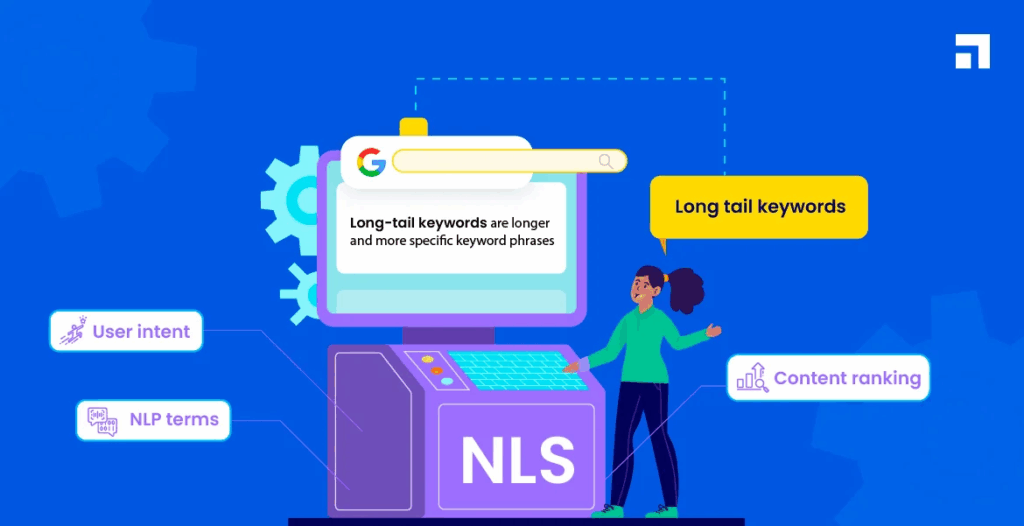How to Optimize Your Business for ‘Near Me’ Searches with AI & NLP
- Posted 3 days ago
In today’s digital world, consumers are increasingly turning to search engines to find businesses and services near them. Whether they’re looking for a nearby coffee shop, a plumber, or a local gym, the rise of ‘near me’ searches has made it crucial for businesses to be discoverable in these hyper-local queries. As search behavior evolves, AI (Artificial Intelligence) and NLP (Natural Language Processing) technologies have become vital tools in optimizing businesses for local searches.
This blog post will guide you through how you can use AI and NLP to optimize your business for ‘near me’ searches and improve your local search visibility.
Understanding ‘Near Me’ Searches
‘Near me’ searches refer to queries where users are looking for businesses or services within a specific geographic proximity to them. For instance, searches like “restaurants near me,” “plumber near me,” or “gym near me” have become increasingly common, especially with the advent of mobile devices and voice search assistants like Google Assistant and Siri.
These searches are driven by users seeking immediate solutions in their location. In fact, Google reports that nearly “near me” searches are growing by “over 150%” year-on-year, especially on mobile devices. Therefore, businesses that are optimized for local SEO and ‘near me’ queries are more likely to appear in front of customers who are ready to make a purchase or use their services.
The Role of AI and NLP in Local Search Optimization
AI and NLP are revolutionizing the way search engines understand and rank local search queries. Traditional keyword-based SEO strategies are no longer enough. Today, AI and NLP help search engines interpret context, user intent, and location data to deliver more accurate results. Here’s how these technologies can optimize your business for ‘near me’ searches:

1. AI-Powered Location Understanding
AI has the ability to analyze and process large datasets to understand the intent behind local searches. For example, AI-powered algorithms can assess various signals such as IP addresses, GPS data, and search history to determine the user’s precise location. This helps search engines display the most relevant and geographically accurate results.
By integrating location-based AI solutions, businesses can ensure that their digital presence is optimized for local intent. For instance, if you own a restaurant in Toronto, your business can be listed when users search for “best Indian restaurant near me in Toronto.”
2. Natural Language Processing (NLP) for Contextual Understanding
NLP is a branch of AI that focuses on the interaction between computers and human language. NLP helps search engines understand natural language and context, making it easier for businesses to appear in conversational searches. With voice search becoming increasingly popular, more users are typing or speaking queries in full sentences rather than using short keywords. For example, instead of searching for “plumber near me,” a user may search, “Who is the best plumber near me who can fix a leaking faucet?”
Here’s where NLP shines. By using NLP, businesses can optimize their content to match natural conversational queries. When a search engine understands the intent behind these queries, it can better match the search results with the content that best addresses the user’s needs. For example, if you operate a plumbing service in Vancouver, optimizing your site for these long-tail conversational keywords can increase the chances of your business appearing in relevant searches.
3. AI-Enhanced Personalization
With AI, businesses can offer personalized experiences for users based on their browsing behavior, preferences, and past interactions. Machine learning algorithms can analyze user behavior patterns and predict what products or services they may be interested in based on location, time of day, and past searches.
By offering personalized results, search engines increase the chances of your business appearing in front of relevant customers. For instance, if a customer searches for “best restaurants near me” and has previously searched for vegan food, AI can tailor the search results to highlight vegan restaurants in their area.
4. Improving Google My Business with AI
Google My Business (GMB) remains one of the most essential tools for optimizing for local searches, particularly ‘near me’ searches. AI plays a significant role in GMB by improving the accuracy of business listings and ensuring they appear in local search results.
- AI-Driven Reviews and Ratings: AI helps analyze customer reviews and automatically surfaces those that are most relevant to local searches. A highly-rated, well-reviewed business is more likely to be recommended in local search results.
- Voice Search Optimization: With the increasing popularity of voice search, AI is helping Google understand voice queries better. This enables businesses with GMB listings to show up when users ask voice assistants about services near them.
5. Enhancing Local Content with NLP
Content optimization is critical for ranking in local search results. To optimize your website for ‘near me’ searches, businesses need to create local content that resonates with their target audience. NLP can help with content creation by ensuring it aligns with natural conversational queries.
For instance, if you run a yoga studio in Toronto, using NLP tools to generate location-specific content, such as blog posts like “Best Yoga Classes Near Me in Toronto” or “Top Yoga Studios for Beginners in Toronto”, can improve your chances of ranking in relevant local searches.
Moreover, businesses can use NLP to automatically generate location-based FAQs or product descriptions that directly address the common questions or concerns users have. Optimizing for question-based search queries is especially important as voice assistants like Alexa or Google Assistant become a go-to for local searches.
6. AI-Powered Local Link Building
Link building remains a critical component of SEO, but traditional link-building methods are being enhanced by AI. AI tools can identify authoritative local websites, directories, and platforms relevant to your business. By securing links from these high-quality local sources, you can significantly improve your business’s authority and ranking for local search queries.
For example, if you own a Toronto-based bakery, AI can help identify local food bloggers, restaurant review websites, and Toronto-specific directories that can provide valuable backlinks. These local backlinks help search engines understand your relevance in the community and improve your local search rankings.
How to Optimize Your Business for ‘Near Me’ Searches with AI & NLP
1. Claim and Optimize Your Google My Business Listing
To optimize for ‘near me’ searches, it’s essential to have an updated and accurate Google My Business profile. Ensure your business name, address, phone number (NAP), business hours, and services are all correctly listed. Use AI-driven insights to monitor your reviews and respond to customer feedback in a timely manner.
2. Create Location-Specific Content
Using NLP and AI, generate high-quality, location-specific content that addresses common queries in natural language. Focus on long-tail keywords and conversational phrases that people are likely to use when searching for services near them. Incorporating local landmarks, events, and references can make your content even more relevant.
3. Leverage AI for Personalized Marketing
AI can help you personalize your marketing efforts based on user behavior. Use machine learning tools to segment your audience based on their interests, location, and previous interactions. Tailor your content and offers to meet their specific needs, whether through targeted emails, local ads, or personalized website experiences.
4. Optimize for Voice Search
As voice search continues to rise, optimize your website and content for voice-based queries. Ensure your content answers the types of questions people ask their voice assistants, such as “Where can I find a plumber near me?” or “What is the best vegan restaurant near me?”
5. Improve Your Website’s Mobile Experience
Since most ‘near me’ searches are conducted on mobile devices, it’s crucial to have a mobile-optimized website. Ensure fast load times, easy navigation, and a seamless user experience on smartphones and tablets. Google’s algorithms favor mobile-friendly sites, especially for local searches.
Read Also : How Canadian Local Businesses Can Use AI SEO to Rank on Google & ChatGPT
Conclusion
Optimizing your business for ‘near me’ searches is essential for gaining visibility in local search results. By incorporating AI and NLP technologies, businesses can improve their local SEO strategies, increase customer engagement, and drive traffic to their websites and physical locations. From enhancing your Google My Business profile to creating personalized content and optimizing for voice search, AI and NLP offer businesses a powerful toolkit for succeeding in the competitive world of local search. As these technologies continue to evolve, businesses that embrace them will be best positioned to connect with their local audience and thrive in the digital age.

